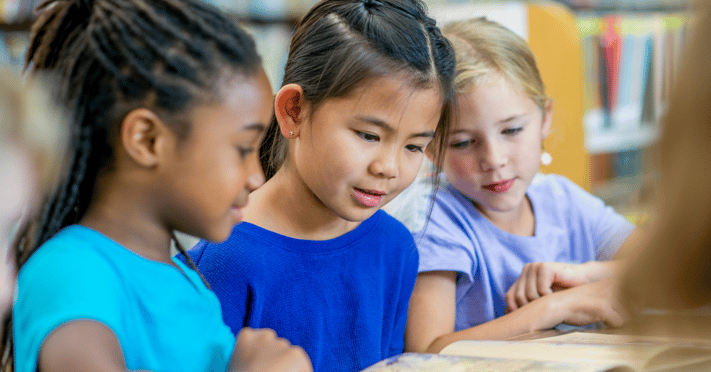
Need to Know
- Success happens at the intersection of academic knowledge and strong social-emotional skills
- Ethics is a foundational aspect of all social-emotional learning
- Ethics equips children with tools to live happy, healthy, productive lives
A Closer Look
The impact of social-emotional learning (SEL) on students and school communities has been thoroughly researched and its potential to boost student achievement has driven more and more states to consider weaving SEL into everyday instruction. Not only does it positively affect achievement, but it equips students with the skills vital to the development of positive social skills, healthy relationships and interpersonal skills.
Literacy as a Vehicle for Teaching Social-Emotional Learning
SEL has proven crucial to the development of a well-rounded education, and when complemented with academics, it is a stepping stone to postsecondary success. For too long, schools have overemphasized academic performance, creating an environment where teachers often don’t have the capacity or time to support development of these essential skills, which leads to conflicting priorities. However, one does not need to be sacrificed at the expense of the other—ideally, academic achievement and social-emotional learning should be viewed as complementary objectives.
CASEL identifies five core competencies that can be used as a starting point to establish learning standards: self-awareness, self-management, social awareness, relationship skills and responsible decision-making. These core competencies can help us navigate creating high-impact SEL instruction. One area of curriculum that works especially well when paired with SEL concepts is language arts. This is because books are riddled with emotions and allow readers a window into human condition, ethics and motives. Through reading, we’re often able to get a front row seat to all of these things and experience how characters process different emotions. Language arts sets the stage for students to not only develop a deeper understanding of literacy skills, it allows them to develop a deeper understanding of social and emotional literacy skills such as empathy, communication, collaboration and self-control.
The Role of Ethics in Social-Emotional Learning
Another critical piece of social-emotional learning is ethics. Ethics provides students with a moral compass that can aid them in thinking and acting morally—reinforcing CASEL’s five core competencies of SEL. Dr. Larry Donnithorne, EdD, Former West Point Professor of Ethics, states: "When school-aged children are guided to develop habits of thinking and acting morally, they are being well-equipped for a happy, wholesome and productive life."
Epic Ethics for Peaceful Schools’ literacy-focused educational program integrates Four Awesome Questions that align with the Daniels Fund Ethics Initiative Principles, empowering students to learn ethical decision making through the exploration of the essential human challenges of character development.
Following the Epic Ethics curriculum, before they act or speak, students should first ask:
- Is it true?
- Is it fair?
- Will it build friendships and community?
- Will it be helpful to those involved?
Building Strong Character in and Out of the Classroom
Utilizing literacy content as a vehicle to teach SEL and ethics offers students the opportunity to engage in critical thinking and productive discussions that allow them to better understand how to:
- Identify, understand and express their own feelings (self-awareness)
- Resolve conflict in a productive way (responsible decision-making)
- Celebrate their own diversity, culture and identities as well as those of others (social awareness)
- Develop strength through peace (relationship management)
Through this blending of literacy, SEL and ethics, we can help nurture a love for literature while also nurturing responses rooted in empathy that will serve students’ needs beyond the classroom.
Learn more about Epic Ethics and how you can use literacy content to start delivering high-impact SEL instruction in our webinar Ethics: The Garden for Social and Emotional Growth.

